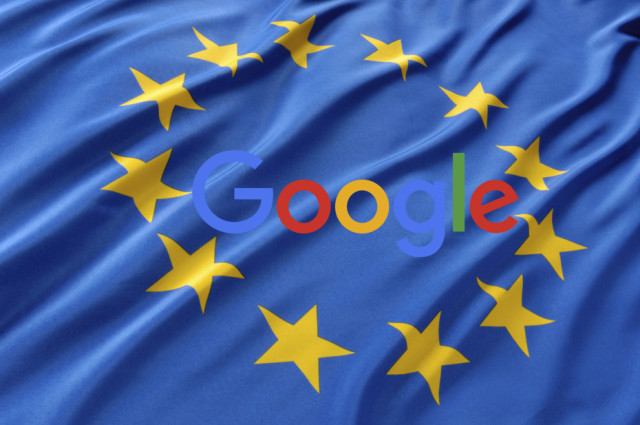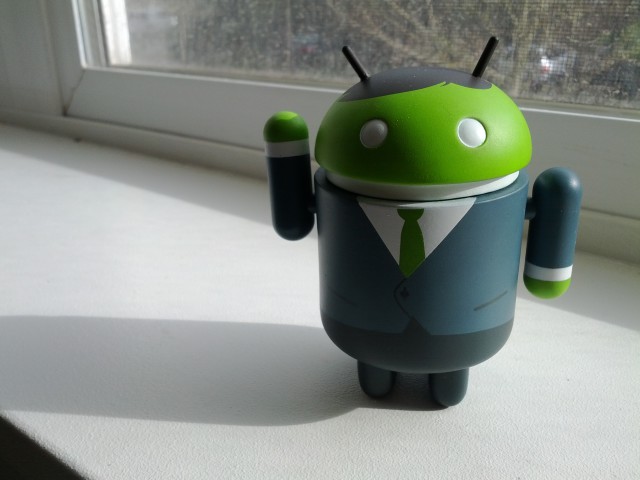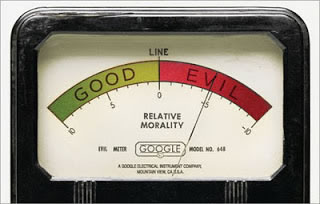Analysis of all charges brought against the “corporation of good”. Does Google confirm its unspoken nickname?

Google recently received some rather unpleasant but expected news from the representatives of the European Union. After a year of antitrust investigations, the European Commission has provided Google with a Notice of Complaints that addresses three key aspects of the business platform Android. This was the first step in a process that could result in substantial fines and sanctioned changes for the internet giant.
The problems considered in the document are complex in nature, which is typical for most of the issues of legal regulation with the participation of transnational corporations. And the added complexity of the matter is that the EU has identified three controversial and unrelated issues. Thus, the case becomes more complex than the past sensational antitrust investigation of a large technology company – a case of the turn of the millennium against Microsoft and Internet Explorer.
The nontriviality of the case may have contributed to your misperception of the commission's dissatisfaction. In fact, I do not believe that either side is 100% right. While Google seems to have really respectful of the two charges (bundled app delivery and search exclusivity), I'm sure the company is likely to suppress competition and harm the consumer assortment, which is what the third charge is about. .
I suggest that you familiarize yourself with the charges in detail.

Business model Android
Android is often hailed as a free open source platform, but this is only partially true. Device manufacturers have two options to choose from Android: the truly free and open source Android Open Source Project (AOSP), and the definitely more limited (and more popular) version with Google's mobile services suite (GMS) ).
The differences between versions are significant and this gap has only widened over time. The GMS version contains most of Google's own applications and services (Gmail, Google Now, Play Store), which Western users are already used to Android – devices, these products are not in the AOSP version. It can be described as a primitive and functionally truncated version of the OS that the average user would hardly identify as Android But AOSP matters a lot. With its help, Google claims that anyone can create a Android device without paying a license fee, and sets a fairly low bar for market entry. This is one aspect of the antitrust process that differentiates the current case and the aforementioned litigation regarding Microsoft, which made Internet Explorer the only available default browser in commercial versions Windows. It turned out that due to the official absence of non-commercial versions Windows, any OEM who expressed a desire to create a device or PC with a diagonal of more than eight inches based on Windows had to pay Microsoft for a license.
Google made the GMS version Android more attractive to manufacturers because it includes applications and services that users need from the OS, primarily the Play Store catalog. But the license implies certain obligations: to create devices based on the licensed version Android manufacturers must agree to many conditions. And it was these conditions that for the most part formed the basis of the objections of the European Commission.
Problem # 1: bundling applications
The first question touches on Google's requirement for manufacturing partners to pre-install their own suite of applications on their devices. The Commission believes that such a commitment stifles competition by preventing OEMs from installing their products on devices and serves as a barrier to consumers. The Commission says that device owners rarely intentionally download applications that mimic the preinstalled software samples.
Overall, this EU complaint can be considered the weakest, mainly due to the existence of the AOSP. Google actually has strict guidelines for using the 'best' version Android, but why not? Developing and maintaining Android is not cheap, and Google deserves to profit from it. The profit comes from advertising, which is mostly done through the services and applications offered by Google – free to use products. If a vendor wants to include their own apps in the build instead of Google's options, they can do so based on the AOSP build. And that's exactly what I did Amazon in my Fire tablets.
Problem 2: search exclusivity
The second complaint contains suspicion of financial incentives by Google to its partners to ensure the presence of only Google search on released devices. This is precisely a suspicion, because the details of this and other partnerships are closely hidden business secrets and it is not known how the regulator will be able to get the details. However, this appears to be a real business agreement that, importantly, can be negotiated with any other search provider / operator. Consider the fact that it is not easy to offer more money than Google, but this has already happened: in 2010 Microsoft Verizon paid to install Bing on the carrier's devices as the default search.
The said agreement did not last long, which could serve as an argument in favor of Google, which, despite the alternatives, owns the best search engine on the market. In fact, it’s likely that enough Verizon customers have ditched Bing and the deal didn’t turn out to be profitable for the operator. I agree that the statement about the superiority of Google in the aspect of a search engine is purely subjective, but in the process of actively using one or another search engine, almost every time I am unpleasantly surprised at the level of quality of the results obtained. It's going to be tough if you want to convince me that Bing / Yahoo / AOL / DuckDuck Go is delivering similar results, Google is way ahead.
Problem 3: banning alternative products
Finally, we got to the third, and, in my opinion, the only legitimate point of accusation against Google: if the manufacturer uses the GMS version Android licensed by Google, then he is prohibited from releasing devices with AOSP. This exclusivity makes it impossible for manufacturers to experiment with 'forks' Android, which lack Google's profit-making apps and services. In a response on the company's blog, Google representatives expressed the view that such an arrangement exists to ensure the integrity of the user experience. The main idea is that in 'fork' assemblies often not all applications work as the user expects, and this can become a problematic moment and form a negative impression of Android in general.
To me, it smells of deliberate disorientation, and Google, by claiming to act in the interests of consumer protection, is actually protecting its bottom line. By making all-or-nothing agreements like this, Google forces OEMs to make choices that actually stifle competition in an unnatural way. Of the three points, this one addresses the aspect of operations through which the company clearly strengthens its market dominance in order to further consolidate its position in other market verticals.
Do the right thing
I do not think that Google will be able to get around all three charges without any penalties, more specifically – fines, and orders to make changes to its business model, at least in Europe. Be that as it may, the nature of these sanctions is in plain sight and depends on the final decision on each charge.
Until very recently, Google's unofficial corporate motto was “Do no evil.” After the reorganization of the business at Alphabet, the motto became 'Do the right thing', which essentially carries a similar philosophy. I believe that Google mostly follows these mantras, even in those practices that are reflected in the protest expressed by the European Commission. But I also feel like the company is moving away from its values by locking manufacturers in the lucrative Google Mobile Services program at the expense of potential product lines that Google is banning manufacturers from doing.
Original article by Evan Blass
Of course, Google is clearly acting in its own interests and is trying to minimize the risks of losing any part of the profit. But, according to the European Commission and the author of the article, in some aspects of its activities the company uses methods and principles that are not entirely fair in relation to other manufacturers. For its part, Google is “doing the right thing,” but there is another point of view, which, however, the giant probably does not care about. It seems to me that the critical moment for the company has not yet come when it became necessary to use unfair competition, suppressing its own partners. Forks are not always evil, it also happens that you get good versions. On the one hand, this can be viewed as competition, but on the other, it is clear that such devices, if they are popular, will only contribute to further popularization Android. Well, the investigation is underway, we will follow its results.
In his analysis of the charges, the author mentioned an interesting thesis from the representatives of the European Commission, according to which a very meager number of users install third-party applications to replace stock ones. In this regard, the question is: are you doing this, dear readers? Or are you using stock solutions from your device manufacturer?

